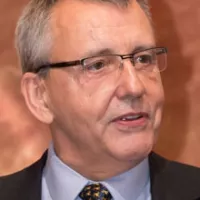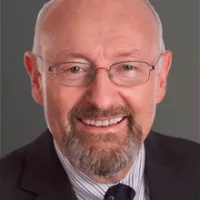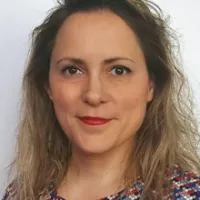Study
| EST. READ TIME 2 MIN.Towards A Worldwide Index of Human Freedom
Share
The quest
People have been seeking freedom for millennia but not freedom for all. Slaves, serfs, women, outsiders, and the defeated were not included. That changed in the last few centuries as the circle of those deserving freedom expanded. Evolution continues. Two centuries ago, slavery was alive in many nations, not just the United States; a century ago, women lacked full citizenship and the freedoms that go with it; more recently, sexual orientation is being removed as a barrier to freedom.
Yet, efforts to measure freedom have only emerged in the last quarter century or so. Unfortunately, these efforts have been flawed: blurring various definitions of confusing “other good things” with freedom, using subjective rather than objective measures, and either failing to account for economic freedom or focusing exclusively on it.
The project
This project, sponsored by Canada’s Fraser Institute, Germany’s Liberales Institut, and the United States’ Cato Institute, focuses on creating the first comprehensive and conceptually consistent index of freedom, including economic freedom, and is based on the “negative” definition of freedom—in other words, the absence of barriers or coercion that prevent individuals from acting as they might wish.
We have held four seminars to explore the concept and how to development a way forward: the first in Atlanta, sponsored by Liberty Fund; two in Potsdam, sponsored by the Liberales Institut (Liberty Institute) of the Friedrich-Naumann-Foundation; and one in Washington, DC, sponsored by the Cato Institute.
- Read the Full Publication
- Chapter 1 - Why Do We Measure Freedom?
- Chapter 2 - Human Freedom from Pericles to Measurement
- Chapter 3 - An Index of Freedom in the World
- Chapter 4 - Measuring Individual Freedom: Actions and Rights as Indicators of Individual Liberty
- Chapter 5 - A Compact Statement of a Cost-based Theory of Rights and Freedom
- Chapter 6 - Conditions for Freedom
- Chapter 7 - Evolution and Freedom
- Chapter 8 - Liberty in Comparative Perspective
- Chapter 9 - The Evisceration of Liberty in Canadian Courts
- Chapter 10 - From Fighting the Drug War to Protecting the Right to Use Drugs
Share
-

Fred McMahon
Resident Fellow, Dr. Michael A. Walker Chair in Economic FreedomFred McMahon is a Fraser Institute Resident Fellow and holder of the Dr. Michael A. Walker Chair in Economic Freedom.He has an M.A. in Economics from McGill University. Mr. McMahon manages the Economic Freedom of the World Project and coordinates the Economic Freedom Network, an international alliance of over 100 think tank partners in about 100 nations and territories. His research focuses on global issues such as development, trade, governance and economic structure. Mr. McMahon is the author of numerous research articles and several books including, Looking the Gift Horse in the Mouth: The Impact of Federal Transfers on Atlantic Canada, which won the Sir Antony Fisher International Memorial Award for advancing public policy debate, Road to Growth: How Lagging Economies Become Prosperous, and Retreat from Growth: Atlantic Canada and the Negative Sum Economy.He has written for numerous publications including the European Journal of Political Economy, the SAIS Journal (School of Advanced International Studies, Johns Hopkins University), the Wall Street Journal, Policy Options, National Post, Time (Canada), Globe and Mail, Ottawa Citizen, and most other major Canadian newspapers. Research articles he has recently authored or co-authored include: Economic Freedom of North America, Quebec Prosperity: Taking the Next Step, The Unseen Wall: The Fraser Institute's Annual Trade Survey, and Economic Freedom of the Arab World.… Read more Read Less… -

Chris Schafer
Chris Schafer is the Executive Director of the Canadian Constitution Foundation. Prior to joining the CCF, Chris was an associateat Gowling Lafleur Henderson LLP in Ottawa, where his practice areas included constitutional and regulatory law. Chris holds an Honours B.A. in Political Science (Wilfrid Laurier), a Masters in Political Science (University of Western Ontario) and an LL.B. (Osgoode Hall Law School). A published author, Chris has written several studies and numerous articles on public policy and legal issues for think tanks, journals, and newspapers.… Read more Read Less… -

Karen Selick
Karen Selick is a lawyer practising in Belleville, Ontario and a columnist for Canadian Lawyer magazine.
-

Michael Walker
Fraser Institute Founder and Honorary DirectorMichael Walker was the executive director of the Fraser Institute from its inception in 1974 until September 2005. Before thathe taught at the University of Western Ontario and Carleton and was employed at the Bank of Canada and the Federal Department of Finance. He received his Ph.D. at the University of Western Ontario and his B.A. at St. Francis Xavier University. In 2016, he was appointed to the Order of Canada in recognition of his outstanding achievement, dedication to the community and service to the country.As an economist, he has authored or edited 45 books on economic topics. His articles on technical economic subjects have appeared in professional journals in Canada, the United States and Europe, including the Canadian Journal of Economics, the American Economic Review, the Journal of Finance, the Canadian Tax Journal, Health Management Quarterly, Weltwertschaftliches Archiv and Health Affairs. His primary concern as the founding Executive Director of the Fraser Institute has been to promote the examination and use of competitive markets as a method for enhancing the lives of Canadians.He is the co-founder, with Milton and Rose D. Friedman, of the Economic Freedom of the World project which is now a collaboration of institutes in 85 countries and produces the annual Economic Freedom of the World Index. The Index is one of the most widely cited such measures in the current academic literature.He is a director of a number of firms and other enterprises, including, Canaccord Capital, Mancal Corporation, The Milton and Rose D. Friedman Foundation, and the owner of the Prado Verde Estates and Falcon MHP. He is a director of The Pacific Academy for Advanced Studies which organizes the annual Alamos Alliance meetings of the Chicago Boys who have been instrumental in the economic reform process in Latin America and elsewhere.He has received the Vancouver Rotary Club Service above Self Award, the Colin M. Brown Freedom Medal and Award by the National Citizens' Coalition, an honorary Doctor of Laws degree (LL.D.) from The University of Western Ontario and The Thomas Jefferson Award from the Association of Private Enterprise Education.… Read more Read Less… -

Andrei Illarionov
Andrei Illarionov is a senior fellow at the Cato Institute's Center for Global Liberty and Prosperity, and is one ofRussia's most forceful and articulate advocates of an open society and democratic capitalism. From 1993 to 1994 Illarionov served as chief economic adviser to Viktor Chernomyrdin, prime minister of the Russian Federation. He resigned in February 1994 to protest changes in the government's economic policy. In July 1994, Illarionov founded the Institute of Economic Analysis and became its director. From 2000 to December 2005, he was the chief economic adviser of Russian President Vladimir Putin. Illarionov also served as the president's personal representative in the G-8. In October 2006, Illarionov was appointed senior researcher of the Cato Institutes Center for Global Liberty and Prosperity in Washington, DC. In this position, he has lamented Russia's new corporate state in which state-owned enterprises are governed by personal interests and private corporations have become subject to arbitrary intervention to serve state interests as well as new ways in which political, economic and civil liberties are being eliminated. Illarionov is one of the 34 first signatories of the online anti-Putin manifesto Putin must go, published on March 10, 2010.Illarionov received his Ph.D. from St. Petersburg University in 1987. He has coauthored several economic programs for Russian governments and has written three books and more than 300 articles on Russian economic and social policies.… Read more Read Less… -

Detmar Doering
Dr. Detmar Doering is Director of the Liberales Institut (Liberty Institute) of the Friedrich-Naumann-Foundation in Potsdam, Germany. He studied philosophyand history at Cologne University, where he earned a Ph.D. in Political Philosophy in 1990, and at University College London. He has published several books. Among them are Kleines Lesebuch über den Liberalismus (ed. Translated into 18 languages. English translation: Readings in Liberalism, published by the Adam Smith Institute) (1992); Frédéric Bastiat: Denker der Freiheit (1997); The Political Economy of Secession (ed., with Jürgen Backhaus) (2004); Globalisation: Can the Free Market Work in Africa? (2007); and Freedom, the Rule of Law, and Market Economy (2011). He has also published numerous articles in German and international academic journals and daily newspapers on economic, political, and historical subjects. Since 1996, Dr. Doering has been a member of the Mont Pelerin Society.… Read more Read Less… -

Ian Vásquez
Ian Vásquez is director of the Center for Global Liberty and Prosperity at the Cato Institute.
-

Peter Graeff
Peter Graeff is Assistant Professor of Sociology in the Department of Social Sciences, Goethe-University Frankfurt am Main. He obtained aPh.D. from the University of Bonn. His research interests focus on the analysis of negative and positive social capital and freedom. He is also interested in the methodology of measurement and on statistical methods for the analysis of social science data. He has coedited several books and has published in the disciplines major journals including the Journal of Mathematical Sociology, the European Sociological Review, and Quality and Quantity.… Read more Read Less… -

Paul H. Rubin
Paul H. Rubin is Samuel Candler Dobbs Professor of Economics, Emory University.
-

Erich Weede
Professor Dr. Erich Weede was born 1942 and taught sociology at the University of Bonn until his retirement in fall2004. He earned academic degrees in psychology and political science. In 1982/83 he was president of the Peace Science Society (International), and in 1985/86 was vice-president of the International Studies Association. He has produced 11 books and more than 200 other publications in German or English. His topics include the causes and prevention of war, the rise and decline of nations, Asian civilizations, the invention of capitalism, the spread of economic freedom, economic growth, and income inequality. His books include Economic Development, Social Order and World Politics (Lynne Rienner, 1996) and The Balance of Power, Globalization, and the Capitalist Peace (for the Friedrich-Naumann Foundation, Liberal Verlag, 2005).… Read more Read Less… -

Doug Bandow
Doug Bandow is a Senior Fellow at the Cato Institute. Previously he was the Bastiat Scholar at the Competitive EnterpriseInstitute, the Cobden Fellow at the Institute for Policy Innovation, and a Visiting Fellow at the Heritage Foundation. He also served as a Special Assistant to President Ronald Reagan. He is a weekly columnist for Forbes online and contributes regularly to the Huffington Post, National Interest online, American Spectator online, and other online publications. Previously a columnist for antiwar.com, a nationally syndicated columnist with Copley News Service, and editor of the monthly political magazine Inquiry, he has been widely published in such periodicals as Time, Newsweek, Fortune, Harpers, National Interest, Christianity Today, National Review, New Republic, and American Conservative, as well as leading newspapers including the New York Times, Wall Street Journal, and Washington Post.Bandow has written and edited several books, including Foreign Follies: Americas New Global Empire (Xulon Press), The Korean Conundrum: Americas Troubled Relations with North and South Korea (Palgrave/Macmillan; co-author), Perpetuating Poverty: The World Bank, the IMF, and the Developing World (Cato; co-editor), The Politics of Envy: Statism as Theology (Transaction), The Politics of Plunder: Misgovernment in Washington (Transaction), and Beyond Good Intentions: A Biblical View of Politics (Crossway).He has appeared on numerous television and radio programs. Bandow received his B.S. in Economics from Florida State University in 1976 and his J.D. from Stanford University in 1979. He is a member of the California and D.C. Bars.… Read more Read Less… -

Derek From
Derek From, B.R.S., B.A. (Hon), J.D., is Legal Counsel for the Canadian Constitution Foundation. After graduating with a Bachelor inReligious Studies from Briercrest College, he completed a degree in philosophy at the University of Waterloo. As a musician who has worked with many different record labels in the last ten years, he is interested in copyright law.… Read more Read Less… -

Tanja Porčnik
Resident Scholar (2019-20), The Fraser InstituteTanja Porčnik was a Resident Scholar at the Fraser Institute between March 2019 and March 2020. Her work focused onhuman freedom studies, with a particular attention to measuring human rights protection with multidimensional indicator frameworks. Before joining the Fraser Institute, Porčnik was an Adjunct Scholar at the Cato Institute in Washington, DC, President of the Visio Institute in Slovenia, a Senior Fellow at the Atlas Economic Research Foundation in Teaching Fellow at the Georgetown University’s American Institute on Political and Economic Systems in Prague, Czech Republic. Her articles on human rights, law, international relations, and economic policy appear regularly in professional journals and printed media, and she is a frequent commentator on television and radio. Porčnik is a Ph.D. candidate in Humanities and Social Sciences at the University of Ljubljana, Slovenia. She holds a Master’s Degree in Political Science from University of Ljubljana and a Bachelor’s Degree in Applied Economics from University of Maribor.… Read more Read Less…
Related Topics
Related Articles
By: Tom Flanagan
By: Matthew D. Mitchell
By: Jock Finlayson and Elmira Aliakbari